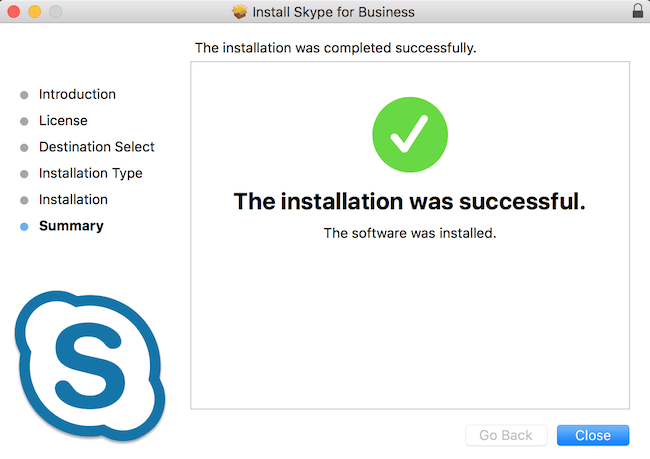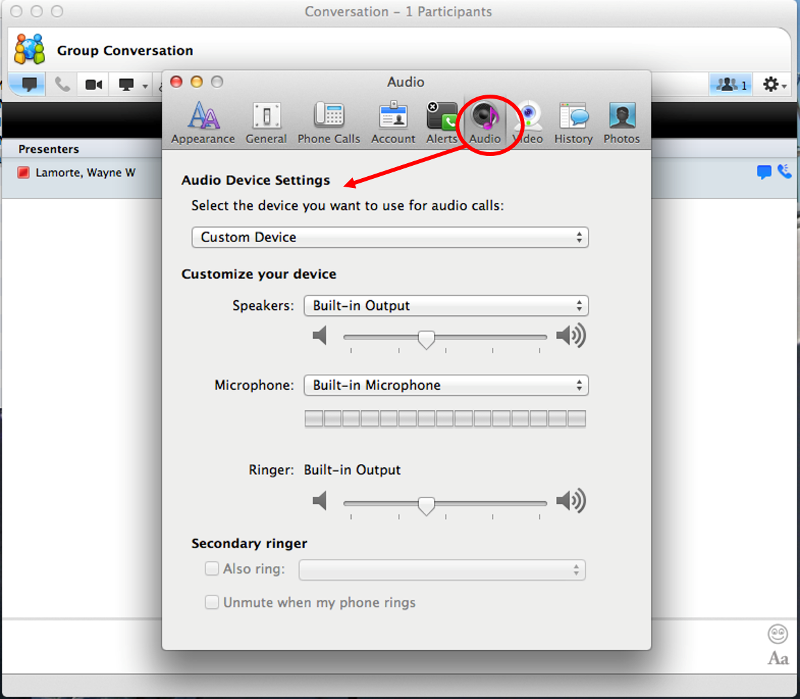

- SKYPE FOR BUSINESS DESKTOP MAC HOW TO
- SKYPE FOR BUSINESS DESKTOP MAC MANUAL
- SKYPE FOR BUSINESS DESKTOP MAC OFFLINE
Write-Host "Finished Tranching Users" -ForegroundColor Green users by pool $pools = Get-CsPool | Where Get-CsUser | Export-Csv c:\temp\allusers.csv -NoTypeInformationĪlternatively, you can export by whatever chunking condition you want, e.g. You can export your users to one csv file by running this command

SKYPE FOR BUSINESS DESKTOP MAC MANUAL
To ease the burden of this manual task I have created a simple script to tranche users based on a full export from your Skype for Business deployment.
SKYPE FOR BUSINESS DESKTOP MAC OFFLINE
The answer invariably means tranching your users offline in some kind of Excel file. Others will be more complicated and require more thought, voice users for instance.ĭoing moves from Skype to Teams using PowerShell is a must, but when you are moving hundreds, or thousands of users in multiple threads and shells to the cloud at scale and speed, how do you keep track of your progress, and more importantly ensure that you are moving the correct users? There will be a number of users with a persona that can be easily migrated to Teams e.g.
SKYPE FOR BUSINESS DESKTOP MAC HOW TO
If you are planning on migrating your users from another system, perhaps Skype for Business or indeed a 3rd party system, the question of how to do this gets more complicated to answer as the numbers of users you have to deal with increases.Ĭonsider the scenario where you have a large Skype for Business deployment of tens of thousands of users. So make sure you set the Autodiscover URL in your Hosting Provider for SfB Online if you want mobile sign in for those legacy meetings! The reason why the desktop client was unaffected is because it looks up the _Sip SRV DNS record for the access edge location and redirection was happening properly through SIP registration. Missing was the Autodiscover URL for Skype Online, so setting that on the hosting provider as follows Set-CsHostingProvider -Identity SkypeforBusinessOnline -AutodiscoverUrl įorcing replication of the CMS and then trying to sign in again fixed the issue and Teams Only users are able to sign in to Skype for Business Online using their mobile app successfully. VerificationLevel : UseSourceVerification User: Next step was to check the hosting provider for Skype for Business Online Get-CsHostingProvider -Identity SkypeforBusinessOnline Identity : SkypeforBusinessOnline (0000000001B0CB29)Could not find hosting provider for hosted user. Opening the log in snooper and following it line by line I found that authentication passed, but the FE could not find the hosting provider for the user. Searching the logs, top tip to reduce the export size, always specify the URI you are interested in, it makes following the log much, much easier! Search-CsClsLogging -Pools -OutputFilePath c:\temp\mobile.log -Uri -MatchAny I attempted to sign in from mobile to capture some logs. I decided that I would run CLS Logging and trace the authentication, so from a Front End Start-CsClsLogging -Pools -Duration 00.00:02 -Scenario Authentication Complete HTTP headers:\r\n Pragma: no-cache

Troubleshooting the issue with the old Lync Connectivity Analyzer suggested that something wasn’t quite right with the authentication process via the autodiscover web serviceĪutodiscover: SendRequest(): the URL couldn’t be connected. The message received on the mobile client On a migration recently we moved a bunch of users from Skype for Business On-Premises to Microsoft Teams Only, leaving behind Enterprise Voice users for the time being.ĭuring this interop period it is required that both EV and Teams users can join Skype for Business meetings hosted by the remaining on-prem users until such time as Teams meetings take over.Īfter moving several users, reports came in that Teams Only people could not sign in to Skype for Business using the mobile app to join a Skype meeting, but where able to sign-in using the Skype desktop client.


 0 kommentar(er)
0 kommentar(er)
